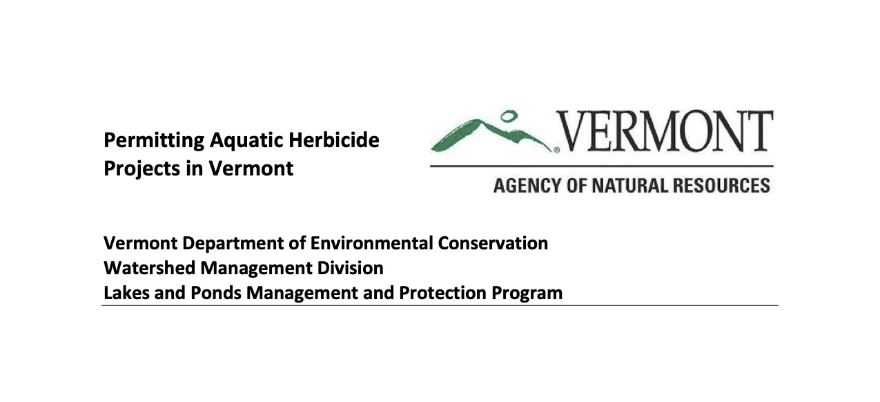Hello LSC.
Back in May, as part of our Spring 2022 Newsletter, we noted that misinformation was being posted online and in newspaper commentaries related to the Lake Bomoseen Association applying for a permit to use the herbicide ProcellaCOR EC to control Eurasian Watermilfoil. This is the product that we have used for our milfoil spot treatments over the last 4 years as part of our Milfoil Control Program. As we mentioned then, and has continued to occur, some are even making things up and disparaging Lake St. Catherine, then using these false stories to voice their opposition.
We'd like to thank the Vermont Department of Environmental Conservation (DEC), Watershed Management Division, Lakes and Ponds Management and Protection Program for publishing a new document entitled “Permitting Aquatic Herbicide Projects in Vermont”.
The Vermont DEC describes that the purpose of the document is to:
1. Provide background information about DEC’s Aquatic Nuisance Control (ANC) permitting program, with a specific focus on aquatic herbicide projects;
2. Identify some of the recent findings related to ProcellaCOR; and
3. Provide a Q&A section on this topic reflecting common questions that DEC receives about our ANC permitting program

The document details Vermont statutes, the permitting application and technical review process, and the departments and agencies involved in the permitting process.
It also discusses key findings on ProcellaCOR EC, including: a pre- and post-treatment statistical analysis of the aquatic plant survey data from Vermont waterbodies treated with ProcellaCOR, an Aquatic Toxicity Review memorandum performed by a DEC Environmental Scientist, a Macroinvertebrate Survey conducted by the New York DEC, a review memorandum performed by a Vermont State Toxicologist from the Vermont Department of Health detailing a review of ProcellaCOR’s confidential statement of formulation, an acknowledgement from the DEC’s Drinking Water & Groundwater Protection Division, and much more.
Finally, the document contains 16 frequently asked questions posed to the DEC about these topics with their answers.
This new document can be viewed here: Permitting Aquatic Herbicide Projects in Vermont
The LSCA has always employed evidenced-based decision making when evaluating lake related issues, and we continue to do so with our Milfoil Control Program. Working with the State and lake scientists & experts, following the science and the data, and evaluating the results of our efforts show that we are doing the right things for the long-term health of Lake St. Catherine. These efforts include numerous effective water quality programs for the Lake St. Catherine watershed including: outreach and education on lake issues, water testing, Lake Wise, the LSC Stormwater Master Plan, Milfoil Control, Aquatic Invasive Species (AIS) Prevention, and the upcoming Lake St. Catherine Watershed Action Plan.
To our members, and all who love Lake St. Catherine, if you ever have any questions or concerns, reach out to us. We would be happy to discuss this or any other lake related topic with you so we can address your questions or concerns, and provide you with factual information. We can always be reached at info@lakestcatherine.org.
Thank you.